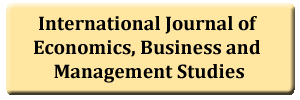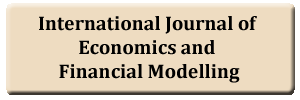The Dynamics of Firm-Level Investment Behaviour of Private Firms in Zimbabwe under Uncertainty, Corruption and High Taxation Regime
DOI:
https://doi.org/10.20448/807.5.1.28.45Keywords:
Firm-level, Investment behaviour, Uncertainty, Corruption, Taxation, Zimbabwe.Abstract
This paper contributes to theoretical literature by providing the first logical analysis of the dynamics of domestic investment behaviour of Zimbabwe’s private firms under conditions of uncertainty, high taxation regime and high levels of public corruption. Many theories of investment behaviour that are applicable in developed countries such as the Tobin q, the flexible accelerator and Jorgenson neoclassical models assume perfect competitive and predictable business environments. However, Zimbabwe has heightened idiosyncratic uncertainties that frequently elevate both business and country risks, thereby depressing firm-level investment. The nexus between taxation, corruption and uncertainties has not been intensively interrogated in empirical literature that focus on firm-level investment decisions. The paper endeavours to incorporate the effects corruption, high taxation polices, and uncertainties by modifying the geometric Brownian model of motion, the endogenous growth model and the flexible accelerator theory of investment behaviour. Uncertainty which was proxied by the inflation rate was found to be negative and statistically significant at 5 percent level of confidence. An increase in business uncertainty by 1% would be expected to decrease firm-level investment marginally by 0.2 %. Corruption was found to be negative and significant at 10% confidence level, hence showing that an increase in corruption levels by 1% will cause firm-level investment to drop by at least 1000%. A high taxation regime was found to decreases firm-level investment by 882%. Policies that enforce zero corruption and low tax rate regimes should be implemented in order to reduce business uncertainty and increase both domestic investment and economic growth in developing economies.





